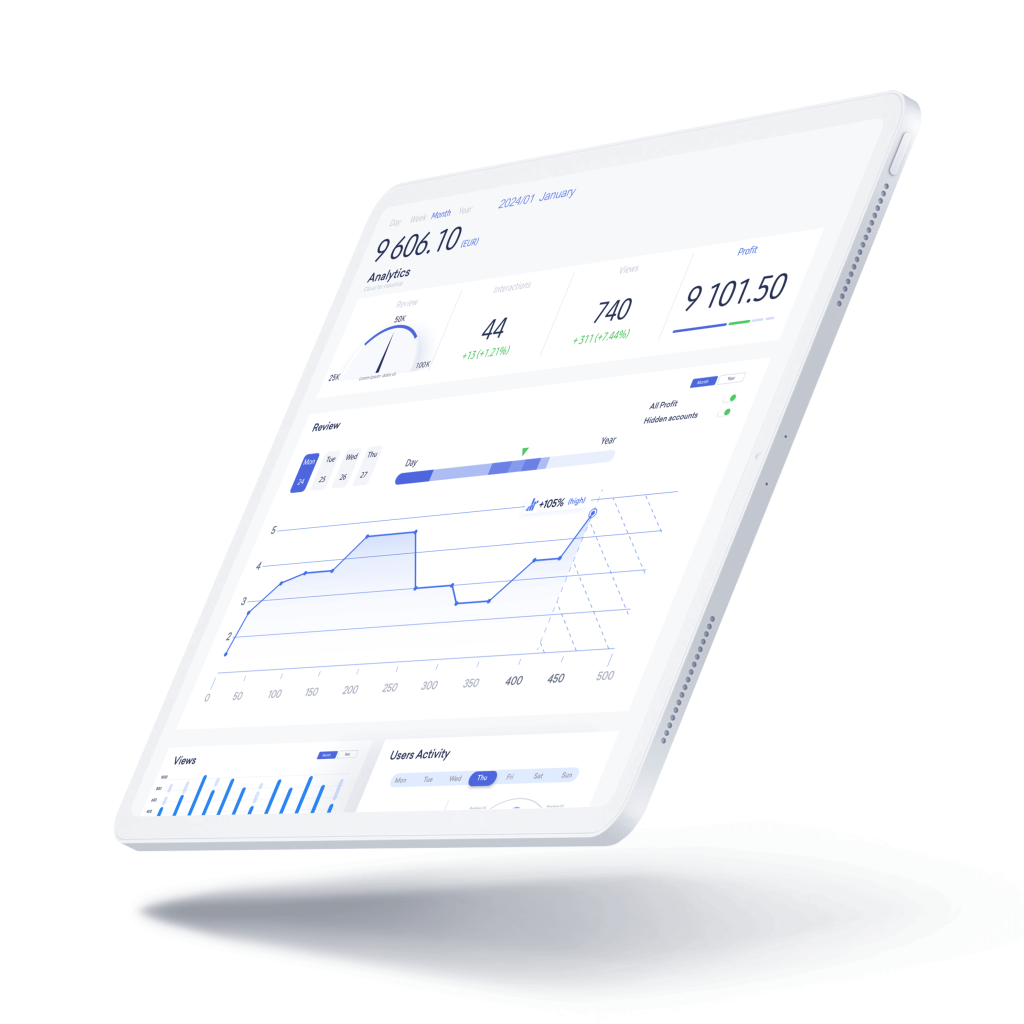
Cloud computing has transformed the business landscape over recent years. As networks proliferate across the globe, public and private clouds have been adopted at record pace across industry sectors. A full cloud environment is not ideal for everyone, however, with many businesses choosing a hybrid setup for the perfect balance of flexibility and control. Let's take a look at hybrid clouds and the many benefits they provide.
What is cloud computing?
Cloud computing is a diverse field that describes the delivery of computing services over the internet. From servers and storage to network infrastructure and software tools, multiple technology resources can be distributed online. When computing resources are decoupled from physical devices and made available on demand, there are multiple benefits. The cloud allows businesses to operate with greater agility and flexibility; helping them to reduce IT costs, enhance security, and scale operations more effectively over time.
Over recent years, there has been mass migration to the cloud as more organisations learn the benefits of this decentralised approach. The process of moving resources to the cloud is known as cloud migration. The details of this process differ considerably based on the size and complexity of the organisation, with issues of security and continuity also affecting the migration roadmap. While popular, wholesale migration is not the right option for some organisations, many of which choose to adopt a hybrid cloud model.

What is a hybrid cloud?
A hybrid cloud is a mixed computing environment that combines cloud-based storage and services with more traditional on-premises solutions. A range of virtual and physical infrastructure can be used to create a single ecosystem, including public clouds, private clouds, and legacy on-site hardware. For many businesses, hybrid cloud computing provides the perfect combination of control and flexibility.
There are many reasons to build a hybrid cloud ecosystem, from issues of cost and continuity to those of data confidentiality and organisational control. With more flexible deployment and enhanced data security and compliance standards, a hybrid cloud environment can benefit many organisations.
Public cloud vs private cloud
Most hybrid cloud arrangements involve a combination of a public and private cloud. Traditionally, public clouds involved an off-premise solution, and private clouds ran on-premises. This arrangement has changed over recent years, however, with cloud environments growing increasingly complex and less defined. For example, some public clouds are hosted from on-premise data centres, and some private clouds are hosted on vendor-owned hardware. There are also many organisations using legacy hardware solutions, often because they're expensive or difficult to replace.
Why some organisations say 'no' to a full cloud environment
If you're thinking about moving to the cloud, there are some important issues to address. Despite all the benefits of the cloud landscape, there are caveats related to cost, deployment, security, and compliance. For example, some businesses have invested heavily in hardware and software systems, and they don't want to disrupt normal operations. There can also be issues related to control, with a full cloud environment sometimes lacking visibility and agility. Last but not least, there may be privacy and security issues that impact compliance. For example, organisations that deal with national security often need to keep sensitive data in-house.
Benefits of a hybrid environment
Regardless of your size or industry sector, moving to a hybrid cloud environment offers significant benefits. For many businesses, a hybrid arrangement provides the perfect combination of flexibility, control, and cost efficiency.
The following benefits are among the most noteworthy:
Support for a remote workforce
Moving to a hybrid cloud allows you to take advantage of new working arrangements. Over recent years, we have seen significant growth in the remote workforce, which has only been possible due to the cloud. From desktop virtualisation and collaboration tools to remote storage and data management, cloud computing has changed how people work on a fundamental level. Businesses with a hybrid cloud infrastructure can benefit from the freedom of remote work while restricting sensitive data to private on-premise servers.
Improved scalability
Cloud solutions enable business scalability. Organisations are no longer restricted by their technology resources, with hardware and software systems capable of being expanded and deployed as needed. This is a huge advantage for start-ups without significant capital, seasonal businesses that need to shift throughout the year, or anyone that wants to expand into new territory without the risk of a huge investment. A hybrid cloud setup allows businesses to optimise performance and efficiency while keeping core functionality in-house.
Enhanced innovation and freedom
Hybrid cloud infrastructure provides more avenues for innovation, which allows for greater professional freedoms. For example, you can test software and services prior to deployment, increase speed to market, and boost technology performance based on changing business demands. A hybrid cloud offers the best of both worlds, allowing you to test, prototype, and launch new products quickly without needing to give up control or remove existing infrastructure.

Better business continuity
Hybrid cloud models enhance business continuity and reduce downtime, both in normal operation and during the migration phase. The cloud helps you to absorb demand when times are good, but it's not always secure in the event of a disaster. With access to on-premises technology, you can avoid business disruption if third-party systems are compromised. If you've been relying on legacy systems for a long time, a wholesale move to the cloud can risk business continuity. Investing in a hybrid setup allows you to protect core functionality and stage migration efforts over time.
Improved security and compliance
Many businesses can move their entire operation to a public cloud without facing significant risks. From applications to platforms to detailed customer records, most databases and services can be accessed remotely without compromising security. This is not true for everyone, however, especially organisations that deal with sensitive data records. If you work for a government department or contractor, a hybrid cloud arrangement provides robust on-premises data security and comprehensive compliance control.
If you want to connect with a proven cloud technology partner, ELEKS is here to help. We offer a complete cloud migration and management service, including hybrid setups and custom software development. Please reach out and contact our customer service team today.
Related Insights










